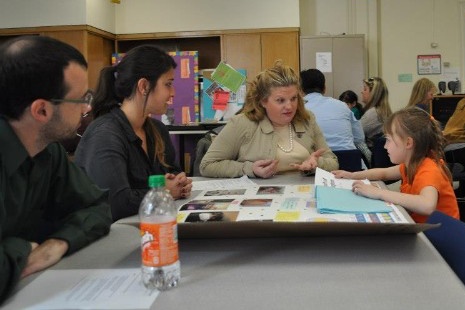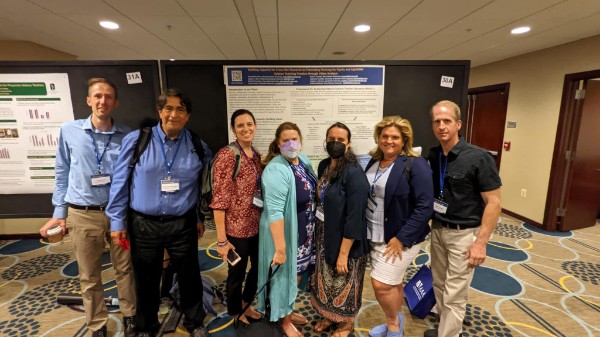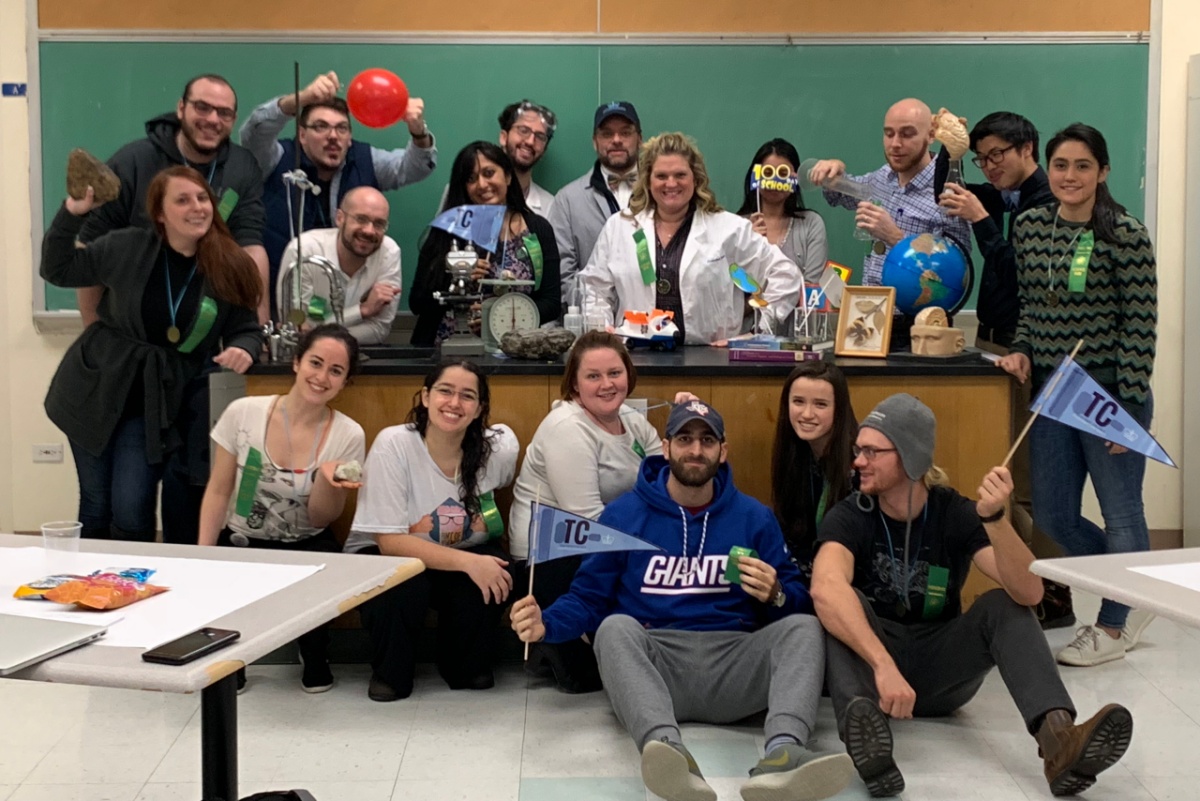More than half of U.S. states report a shortage of STEM educators — particularly in high-need districts, according to the Department of Education.How can we address the deficit and better prepare teachers for classroom challenges like access, proficiency, literacy and more?

(Photo courtesy of Riccio.)
Jessica Riccio (Ed.D. ’08, M.Ed. ’02, M.A. ’99), Senior Lecturer in TC’s Mathematics, Science and Technology department, is working to close the gap. Supported by a National Science Foundation grant, she’s partnering with leaders of teacher preparation programs across seven U.S. higher education institutions to explore practical solutions for pre-service teachers through research and video-based analysis to improve teacher preparation and retention.
“In the STEM discipline, there have been cycles of privilege that have barricaded access for all learners to express their talent and innovative spirit,” Riccio shares. “Preparing teachers in places where these shortages persist works to deconstruct the idea that STEM is not for everyone but rather a web of connection for how we live and navigate the world for future generations.”
Evaluating the Current Landscape
Drawing on her experience working in a high-needs, public school classroom while concurrently enrolled in TC’s Science Education program, Riccio quickly learned that information sharing and peer support were key in addressing her own classroom barriers. “My students, especially in STEM, had such rich ideas, yet what was masking their capability was their literacy abilities.”
She turned to experts in the field like Dolores Perin, Professor Emerita of Psychology and Education, to help inform her teaching strategies. “We began to do things a bit differently using inquiry-based practice, and students began to show improvement quickly. As a first-year teacher, 100 percent of my students passed the Regents exam. I credit that with the strategies that I learned at TC.”

(Pictured left to right: Joshua Ellis (LSU), Larry Escalada (UNI), Heather Johnson (Vanderbilt), Shelly Forsythe (Texas State), Anna Arias (Kennesaw State), Jess Riccio (TC), Brett Criswell (Westchester).
The project aims to leverage a similar peer support model and video analysis to address common challenges faced by STEM educators, such as access, equity, and literacy proficiency, regardless of their location. “Teachers in Iowa are reporting the same classroom struggles as those in Harlem. It’s about communication. With video analysis, teachers can observe themselves in real-time and receive helpful feedback along the way.”
Pre-service teachers from all seven institutions will be monitored from their first to third years in the classroom, with weekly constructive feedback sessions from peers and experts to enhance their STEM teaching methods. “We want our teachers across the country to see, not with a deficit lens, but with an affirmative lens. It's our job as educators to facilitate their ability to learn in a way that's the best for them.”
Leading the Way
Ultimately, Riccio hopes the project will produce new insights about preparation and teacher retention. “This project has the promise of developing a model that will cultivate equitable, noticing skills among STEM teacher candidates that could be adapted by other teacher preparation programs in the future.”
The collaborative initiative aims to create a lasting learning community so teachers can remain connected and receive lifelong support. “Some teachers are the only ones in their district teaching STEM. We want teachers to know that it’s not all on their shoulders — that you're a part of a community of practice.”
Riccio credits Teachers College’s interdisciplinary nature for fueling her inspiration.
“Teachers College has always been a leader in STEM education. We aim to prepare teachers for the most challenging of settings so that they can have the most effective yet rewarding career journey possible. The impact will be profound if we translate that work across institutions.”


